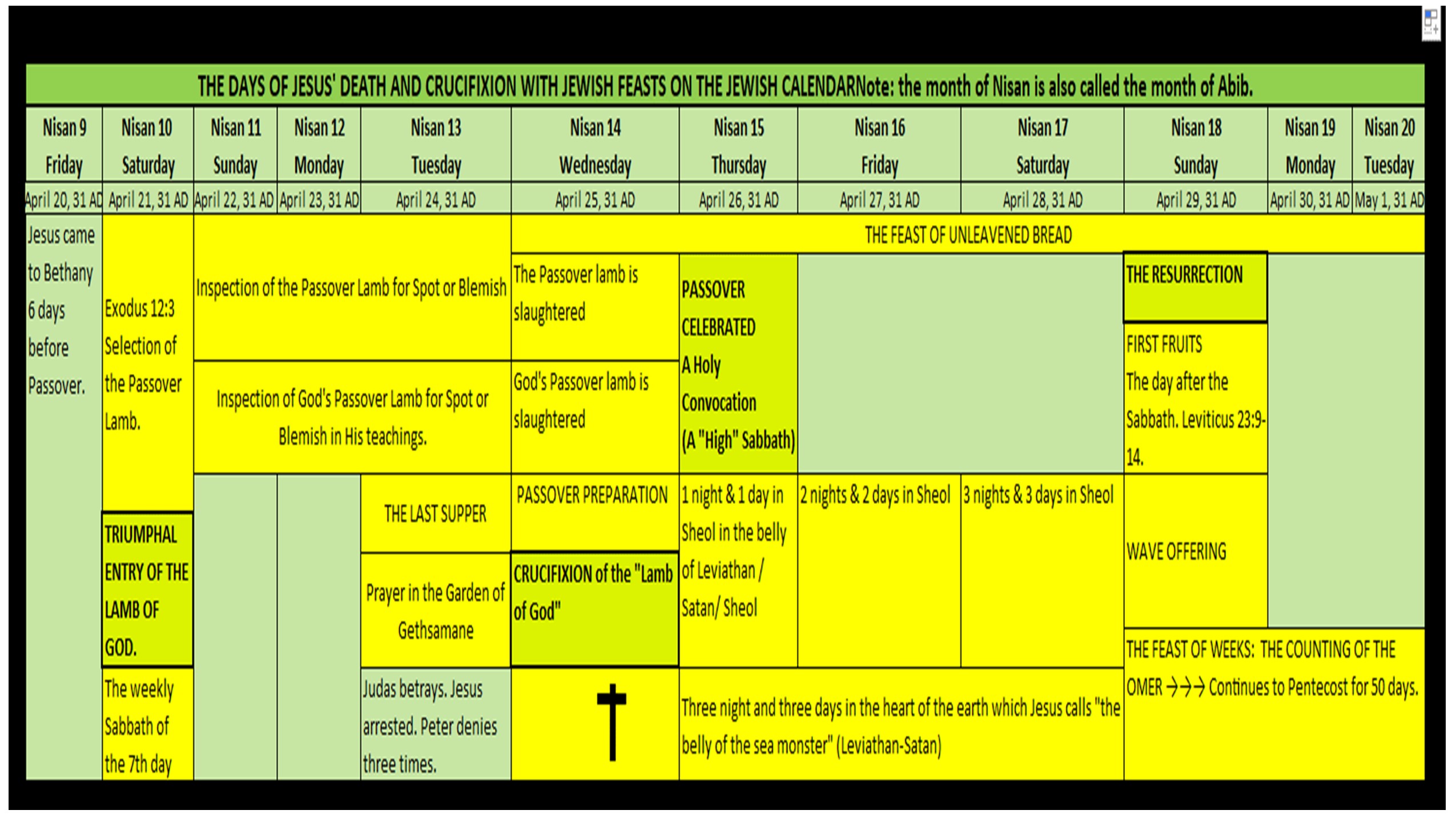Words in italic type have been added for clarity. They are not found in the original Hebrew or Aramaic.
Home Page: Quantum Study Bible
Luke 13
Repent or Perish
Luke 13:1 There were present at that season some who told Him about the Galileans whose blood Pilate had (mixed) mingled with their sacrifices.
Luke 13:2 And Jesus answered and said to them, “Do you suppose that these Galileans were worse sinners than all other Galileans, because they suffered such things?
Luke 13:3 I tell you, no; but unless you repent you will all likewise perish.
Luke 13:4 Or those eighteen on whom the tower in Siloam fell and killed them, do you think that they were worse sinners than all other men who dwelt in Jerusalem?
Luke 13:5 I tell you, no; but unless you repent you will all likewise perish.”
The Parable of the Barren Fig Tree
Luke 13:6 He also spoke this parable: “A certain man had a fig tree planted in his vineyard, and he came seeking fruit on it and found none.
Luke 13:7 Then he said to the keeper of his vineyard, ‘Look, for three years I have come seeking fruit on this fig tree and find none. Cut it down; why does it (waste) use up the ground?’
- Humor: The first mention of a “carbon footprint”
- The fig tree is the tribe/nation of Israel and the Jews. They are not producing the outcome (fruit) that God desires.
Luke 13:8 But he answered and said to him, ‘Sir, let it alone this year also, until I dig around it and fertilize it.
Luke 13:9 (And if it bears fruit after that, well. But if not, you can cut it down…or) And if it bears fruit, well. But if not, after that you can cut it down.’ ”
A Spirit of Infirmity
Luke 13:10 Now He was teaching in one of the synagogues on the Sabbath.
Luke 13:11 And behold, there was a woman who had a spirit of infirmity eighteen years, and was bent over and could in no way (straighten up) raise herself up.
- To not be able to raise herself up is being compared to death:
- Jesus was able to raise himself up from the dead.
- John 2:19 Jesus answered and said to them, “Destroy this temple (speaking of His body), and in three days I will raise it up.”
- Not only did Jesus “create” Himself, He also raised Himself from the dead.
- Jesus was able to raise himself up from the dead.
Luke 13:12 But when Jesus saw her, He called her to Him and said to her, “Woman, you are loosed (unbound, untied) from your infirmity.”
- “While strict adherence to the Sabbath was valued, the early rabbis ruled that some situations warranted an override of Sabbath regulations. If human life was in danger, all rules against working would be set aside for the reason of “pikuah nephesh” — to save life. Also, some rules were set aside out of compassion for animals, so they wouldn’t suffer from not being fed or taken out for water. This was called tzar baalei hayim—preventing suffering to living things.
Jesus seems to be using the logic of tzar baalei hayim in his statement about healing the woman. It was not a life-or-death need that she be healed that day, but she had suffered for 18 years. If an animal can be untied to be led to water to prevent its suffering thirst, shouldn’t she be “unbound” too?”
https://engediresourcecenter.com/2015/07/07/the-logic-of-sabbath/
Luke 13:13 And He laid His hands on her, and immediately she was made straight, and glorified God.
- She “rose up”, like a resurrection.
Luke 13:14 But the ruler of the synagogue answered with indignation, because Jesus had healed on the Sabbath; and he said to the crowd, “There are six days on which men ought to work; therefore come and be healed on them, and not on the Sabbath day.”
Luke 13:15 The Lord then answered him and said, “Hypocrites! Does not each one of you on the Sabbath loose (unbind, untie) his ox or donkey from the stall, and lead it away to water it?
Luke 13:16 So ought not this woman, being a daughter of Abraham, whom Satan has bound—think of it—for eighteen years, be loosed (unbound, untied) from this bond on the Sabbath?”
Luke 13:17 And when He said these things, all His adversaries were put to shame; and all the multitude rejoiced for all the glorious things that were done by Him.
- Once Jesus’ teachings are rejected, He speaks in Parables again which they are not able to understand as a judgment to them.
The Parable of the Mustard Seed
Luke 13:18 Then He said, “What is the kingdom of God like? And to what shall I compare it?
Luke 13:19 It is like a mustard seed, which a man took and put in his garden; and it grew and became a large tree, and the birds of the air nested in its branches.”
The Parable of the Leaven
Luke 13:20 And again He said, “To what shall I liken the kingdom of God?
Luke 13:21 It is like (yeast) leaven, which a woman took and hid in three measures of meal till it was all leavened.”
- Three measures is Greek “sata” and the same as the Hebrew “seah” which is approximately two pecks in all.
- Yeast, in this verse, has a positive connotation. Yeast is used to describe the growth of believers in the Kingdom of God until finally, it is fully leavened.
The Narrow Way
Luke 13:22 And He went through the cities and villages, teaching, and journeying toward Jerusalem.
Luke 13:23 Then one said to Him, “Lord, are there few who are saved?”
And He said to them,
Luke 13:24 “Strive to enter through the narrow gate, for many, I say to you, will seek to enter and will not be able.
Luke 13:25 When once the Master of the house has risen up and shut the door, and you begin to stand outside and knock at the door, saying, ‘Lord, Lord, open for us,’ and He will answer and say to you, ‘I do not know you, where you are from,’
Luke 13:26 then you will begin to say, ‘We ate and drank in Your presence, and You taught in our streets.’
Luke 13:27 But He will say, ‘I tell you I do not know you, where you are from. Depart from Me, all you workers of iniquity.’
Luke 13:28 There will be weeping and gnashing of teeth, when you see Abraham and Isaac and Jacob and all the prophets in the kingdom of God, and yourselves thrust out.
Luke 13:29 They will come from the east and the west, from the north and the south, and sit down in the kingdom of God.
Luke 13:30 And indeed there are last who will be first, and there are first who will be last.”
Luke 13:31 (In that very hour) On that very day some Pharisees came, saying to Him, “Get out and depart from here, for Herod wants to kill You.”
Luke 13:32 And He said to them, “Go, tell that fox, ‘Behold, I cast out demons and perform cures today and tomorrow, and the third day I shall be perfected.’
Luke 13:33 Nevertheless I must journey today, tomorrow, and the day following; for it cannot be that a prophet should perish outside of Jerusalem.
- He casts out demons and performs cures two days before entering Jerusalem. Which day is Jesus “perfected”?

Jesus Laments over Jerusalem
Luke 13:34 “O Jerusalem, Jerusalem, the one who kills the prophets and stones those who are sent to her! How often I wanted to gather your children together, as a hen gathers her brood under her wings, but you were not willing!
Luke 13:35 See! Your house is left to you desolate; and assuredly, I say to you, you shall not see Me until the time comes when you say, ‘Blessed is He who comes in the name of the Lord!’ ”
- At the end of the seven year tribulation every last Jew who has survived will recognize Jesus as their Messiah when He returns to earth to set up His kingdom on earth.
- Hosea 5:15
I will return again to My place (Jesus’ ascension)
Till they acknowledge their offense.
Then they will seek My face;
In their affliction (Lit. become guilty or bear punishment) they will earnestly seek Me.” - Zechariah 12:10 Mourning for the Pierced One – “And I will pour on the house of David and on the inhabitants of Jerusalem the Spirit of grace and supplication; then they will look on Me whom they pierced. Yes, they will mourn for Him as one mourns for his only son, and grieve for Him as one grieves for a firstborn.
- Hosea 5:15
